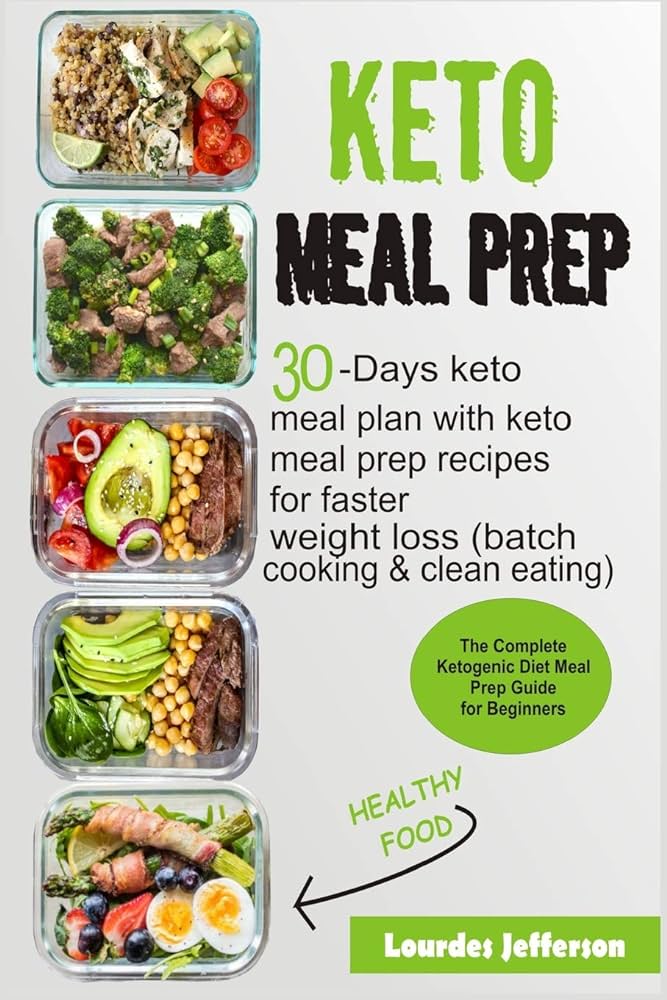introduction
Are you looking to shed a few pounds or improve your overall health without feeling deprived? A low-carb diet might be the perfect solution for you! By focusing on reducing carbohydrates and increasing healthy fats and proteins, a low-carb lifestyle can help you achieve weight loss, stabilize blood sugar levels, and boost your energy.
In this blog post, we’ll explore easy low-carb diet tips that are simple to incorporate into your daily routine. Whether you’re new to low-carb eating or looking for fresh ideas to stay on track, these practical tips will help you reach your weight loss goals while enjoying delicious and satisfying meals. Let’s dive into the essentials of a successful low-carb diet and discover the health benefits it can offer!
Understanding Carbohydrates and Their Impact
Carbohydrates are one of the three macronutrients that provide energy to our bodies, alongside protein and fat. They are found in many different foods, including fruits, vegetables, grains, and dairy products, and are an essential part of a healthy diet. However, not all carbs are created equal, and the type and amount of carbohydrates that we eat can have a significant impact on our health.

Simple carbohydrates, such as those found in sugary drinks and sweets, are quickly absorbed by the body, leading to a rapid spike in blood sugar levels. This can cause a range of health problems, including insulin resistance, weight gain, and type 2 diabetes. On the other hand, complex carbohydrates, such as those found in whole grains and vegetables, are absorbed more slowly, providing a steady source of energy and helping to keep blood sugar levels stable.
The impact of carbohydrates on our health depends not only on the type of carbs that we eat but also on the amount. Overconsumption of carbohydrates, particularly simple carbohydrates and refined grains, can lead to weight gain and other health problems. By understanding the role of carbohydrates in our bodies and making informed food choices, we can optimize our health and wellbeing.
Benefits of a Low Carb Diet
Looking to improve your overall well-being? Adopting a low carb diet can provide numerous benefits for your health and lifestyle. Here are just a few of the advantages:
- Weight loss: By reducing your carb intake, you can shift your body into a fat-burning state and achieve successful, sustainable weight loss.

- Improved heart health: Low carb eating can lead to reduced levels of LDL cholesterol and triglycerides, lowering the risk of heart disease.
- Better blood sugar control: For individuals with diabetes or insulin resistance, a low carb diet can help regulate blood sugar levels and improve overall metabolic function.
- Increased energy levels: By cutting out processed carbs and adding more healthy fats and proteins to your diet, you can experience a steady, long-lasting boost of energy throughout the day.
- Reduced inflammation: By eliminating inflammatory carbs and consuming more nutrient-dense, anti-inflammatory foods, you can reduce chronic inflammation and benefit overall health.
These are just some of the many benefits of a low carb diet. By making informed food choices and embracing a long-term lifestyle change, you can experience improved health, well-being, and vitality.
Getting Started with Low Carb Eating
Embracing a low carb lifestyle may seem daunting at first, but with a few practical tips, you can get started on your journey towards a healthier you. Here are some steps to follow:
Choose Your Low Carb Foods
Stock up on low carb foods such as lean meats, fish, eggs, vegetables, and healthy fats. Avoid sugary and starchy foods such as bread, pasta, and sweets.
Plan Your Meals
Meal planning is crucial for success in low carb eating. Plan your meals and snacks ahead of time to avoid impulse eating. Use websites or apps to find low carb recipes that suit your tastes.
Prepare Your Food
Prepare meals and snacks in advance to save time during the week. Cutting up vegetables or portioning out snacks can also help to avoid impulse eating.
Stay Hydrated
Drink plenty of water to stay hydrated and avoid sugary drinks. Add a squeeze of lemon or lime to your water for an extra burst of flavor.
Stay Accountable
It’s essential to keep track of what you eat and how much you eat. Tracking your food intake can help you stay accountable and motivated. Use a journal or app to track your progress.
By following these tips, you can start your low carb journey and start experiencing the benefits of a healthier lifestyle.
Choosing the Right Foods
When it comes to low carb eating, choosing the right foods is crucial. It’s essential to find low carb options that not only keep your carb intake in check but also keep you feeling satisfied and nourished. Here are some delicious options to consider:
- Vegetables

Vegetables are an excellent source of essential vitamins, minerals, and fiber. Leafy greens such as spinach, kale, and lettuce are low in carbs and high in nutrients and antioxidants. Cruciferous vegetables like broccoli, cauliflower, and Brussels sprouts are also great choices.
- Lean Proteins

Eating plenty of protein is essential for staying full and satisfied while on a low carb diet. Choose lean sources of protein such as chicken, turkey, fish, and tofu. Avoid processed meats that contain added sugars such as sausages and bacon.
- Healthy Fats

Contrary to popular belief, healthy fats are an essential part of a low carb diet. They provide energy, help keep you full, and can improve heart health. Choose healthy fats such as olive oil, avocado, nuts, and seeds.
Finding low carb snacks can be a challenge, but there are plenty of options available. Cheese, Greek yogurt, hard-boiled eggs, and beef jerky are all great choices. You can also snack on low carb fruits such as berries in moderation.

| Food | Carbs per serving |
|---|---|
| Spinach (1 cup) | 1g |
| Broccoli (1 cup) | 4g |
| Chicken breast (3 Oz) | 0g |
| Salmon (3 Oz) | 0g |
| Avocado (1/2) | 5g |
| Almonds (1 Oz) | 6g |
| Blueberries (1/2 cup) | 6g |
Remember to always read labels and check the carb count of any packaged foods. Choosing the right foods is an essential step towards achieving your goals with low carb eating.
Low Carb Eating and Weight Management
Following a low carb diet plan can be an effective approach to achieving and maintaining a healthy weight.
Insulin resistance, often caused by a high carb diet, is one factor that can contribute to weight gain and difficulty losing weight. Cutting back on carbs can help regulate insulin levels and lead to improved weight management.

Low carb eating can also impact hunger hormones, such as ghrelin and leptin, which may help you feel fuller for longer and reduce overall calorie intake.
However, not all low carb diets are created equal. It’s essential to prioritize nutrient-dense, low-carb foods such as vegetables, lean proteins, and healthy fats to support optimal health and well-being while achieving successful weight management.
Strategies For Successful Weight Management
Incorporate low carb foods into your diet daily, including healthy proteins, high fiber vegetables, and low-glycemic fruits.
Avoid processed and refined foods, which are often high in carbs and low in nutrients.
Stay hydrated by drinking plenty of water, and limit sugary drinks as they can contribute to weight gain and insulin resistance.
Practice mindful eating, which involves slowing down and paying attention to hunger and fullness signals.
Incorporate physical activity into your daily routine to boost metabolism and support weight management.
Table: Low Carb Eating and Weight Loss
| Studies | Results |
|---|---|
| A study published in the New England Journal of Medicine | Individuals on a low carb diet lost more weight than those on a low-fat diet over a 12-month period. |
| Another study published in the Annals of Internal Medicine | Participants on a low carb diet lost more weight and body fat than those on a low-fat diet. |
| A study published in the Journal of the American Medical Association | Participants on a low carb diet lost more weight and had greater improvements in blood lipids than those on a low-fat diet. |
“Low carb diets can be an effective way to lose weight, but it’s important to choose healthy, nutrient-dense options to support long-term weight management and overall health.”
Health Considerations and Low Carb Eating
Low carb eating has been shown to offer numerous health benefits, making it an attractive option for individuals looking to improve their overall well-being. In addition to aiding weight loss efforts, this dietary approach may also be beneficial for managing specific health conditions such as diabetes, metabolic syndrome, and heart disease.

| Health Condition | Benefits of Low Carb Eating |
|---|---|
| Diabetes | Low carb diets have been found to improve blood sugar control, reduce the need for insulin, and decrease the risk of complications such as neuropathy and kidney disease. |
| Metabolic Syndrome | A low carb diet may help improve metabolic markers such as blood pressure, triglycerides, and HDL cholesterol levels. |
| Heart Disease | Research suggests that a low carb diet may help reduce risk factors for heart disease, including blood pressure, triglycerides, and markers of inflammation. |
In addition to helping manage these conditions, low carb eating has also been linked to improved blood sugar control, reduced inflammation, and better overall health markers. If you’re considering a low carb diet for health reasons, it’s important to speak with a healthcare professional first to ensure it’s appropriate for your individual needs.
Maintaining a Low Carb Lifestyle Long Term
While a low carb diet can offer many health benefits, the key to long-term success is sustainability. By adopting practical strategies for maintaining a low carb lifestyle, you can stay on track and reap the rewards of healthy eating for years to come.
Eating Out
Eating out can pose a challenge when you’re following a low carb diet, but it’s still possible to make healthier choices. Look for dishes that feature lean proteins, non-starchy veggies, and healthy fats. Don’t be afraid to ask for substitutions or modifications, such as swapping rice or pasta for extra vegetables.

Tip: Check restaurant menus online before you go to see if they offer low carb options.
Traveling
Traveling doesn’t have to derail your low carb lifestyle. Plan ahead by packing snacks and meals for the road, such as hard-boiled eggs, nuts, and veggies with hummus. If you’re flying, check with your airline ahead of time to see if they offer low carb meal options.
Social Situations
Social events and gatherings can be tricky when you’re trying to stick to a low carb diet. To stay on track, eat a healthy meal before you go, so you won’t be tempted to indulge in high-carb finger foods. When in doubt, stick to protein and veggies, and limit your alcohol intake.
Make It a Habit
To make low carb eating a habit, it’s important to establish a routine and find strategies that work for you. Meal planning and prepping can be especially helpful, as can finding low carb recipes that you genuinely enjoy. Remember that small changes add up over time, so be patient and consistent in your approach.
By committing to a low carb lifestyle long term, you can enjoy sustained health benefits and a greater sense of well-being. Whether you’re eating out, traveling, or enjoying social situations, there are many practical strategies you can use to stay on track and stay healthy.
Incorporating Exercise into Your Low Carb Lifestyle
Regular exercise is an essential component of a healthy lifestyle, especially when combined with a low carb eating plan. Incorporating physical activity into your daily routine can enhance weight loss, boost energy levels, and improve overall well-being.
When starting a low carb diet, it’s important to begin with light to moderate exercise and gradually increase intensity and duration as your body adapts. Make sure to consult with your healthcare provider before starting any new exercise routine.
There are various types of exercises that can be incorporated into your low carb lifestyle, such as:
- Resistance training: Additionally known as strength training, this type of exercise involves the use of weights, resistance bands, or bodyweight exercises to build and tone muscles.
- Cardiovascular exercise: Also known as cardio, this includes anything that increases your heart rate and breathing rate, such as running, cycling, dancing, swimming, or brisk walking.
- High-intensity interval training (HIIT): This is a form of exercise that alternates periods of high-intensity exercise with periods of rest or lower intensity. HIIT workouts can be quick and effective for burning calories and improving cardiovascular health.

In addition to structured exercise, it is important to incorporate physical activity into your daily routine. Simple habits like taking the stairs instead of the elevator, going for a walk after dinner, or stretching during work breaks can help keep you active and energized throughout the day.
Benefits of Exercise for a Low Carb Lifestyle
| Benefit | Description |
|---|---|
| Weight loss | Exercise can enhance weight loss by burning calories and increasing metabolism. |
| Improved cardiovascular health | Regular physical activity can strengthen your heart and improve blood pressure and cholesterol levels. |
| Better blood sugar control | Physical activity can help to improve insulin sensitivity, resulting in better blood sugar control. |
| Increased energy levels | Exercise can boost energy levels and reduce symptoms of fatigue and lethargy. |
| Stress relief | Regular exercise can help to reduce stress levels and improve overall mood and well-being. |
Conclusion
Low-carb eating has become a popular path to better health, and it’s easy to see why. Not only can it support weight loss, but it also offers numerous health benefits. By understanding the role of carbohydrates and making informed food choices, you can take charge of your well-being and boost your energy levels.
Sustainability is key, so explore tasty low-carb options that suit your lifestyle. Adding regular exercise can also amplify your results. Ready to start? Dive into a low-carb journey today and experience the benefits for yourself!
Ready to get started? Embrace a low-carb lifestyle today and enjoy the positive changes for years to come!













